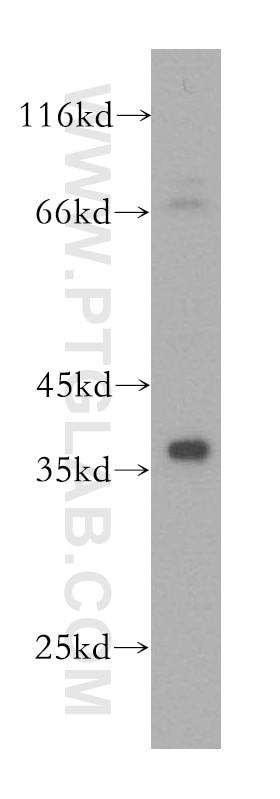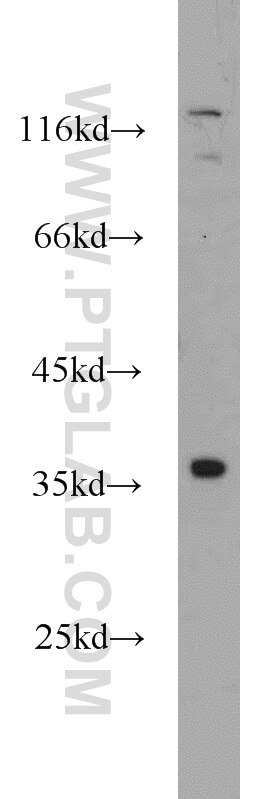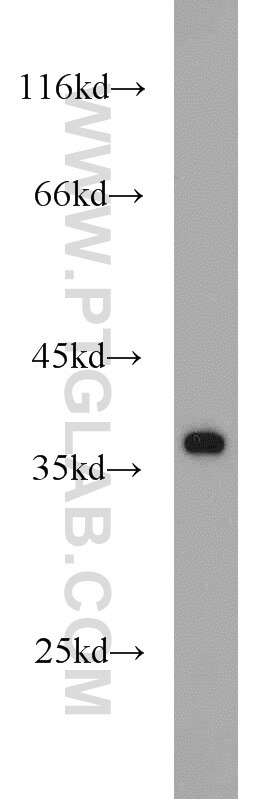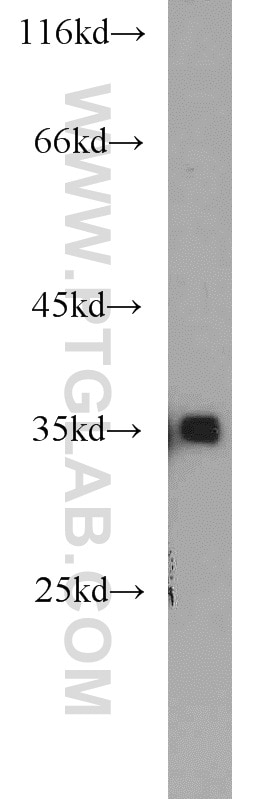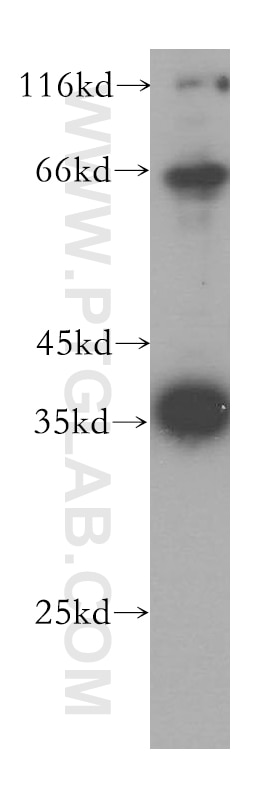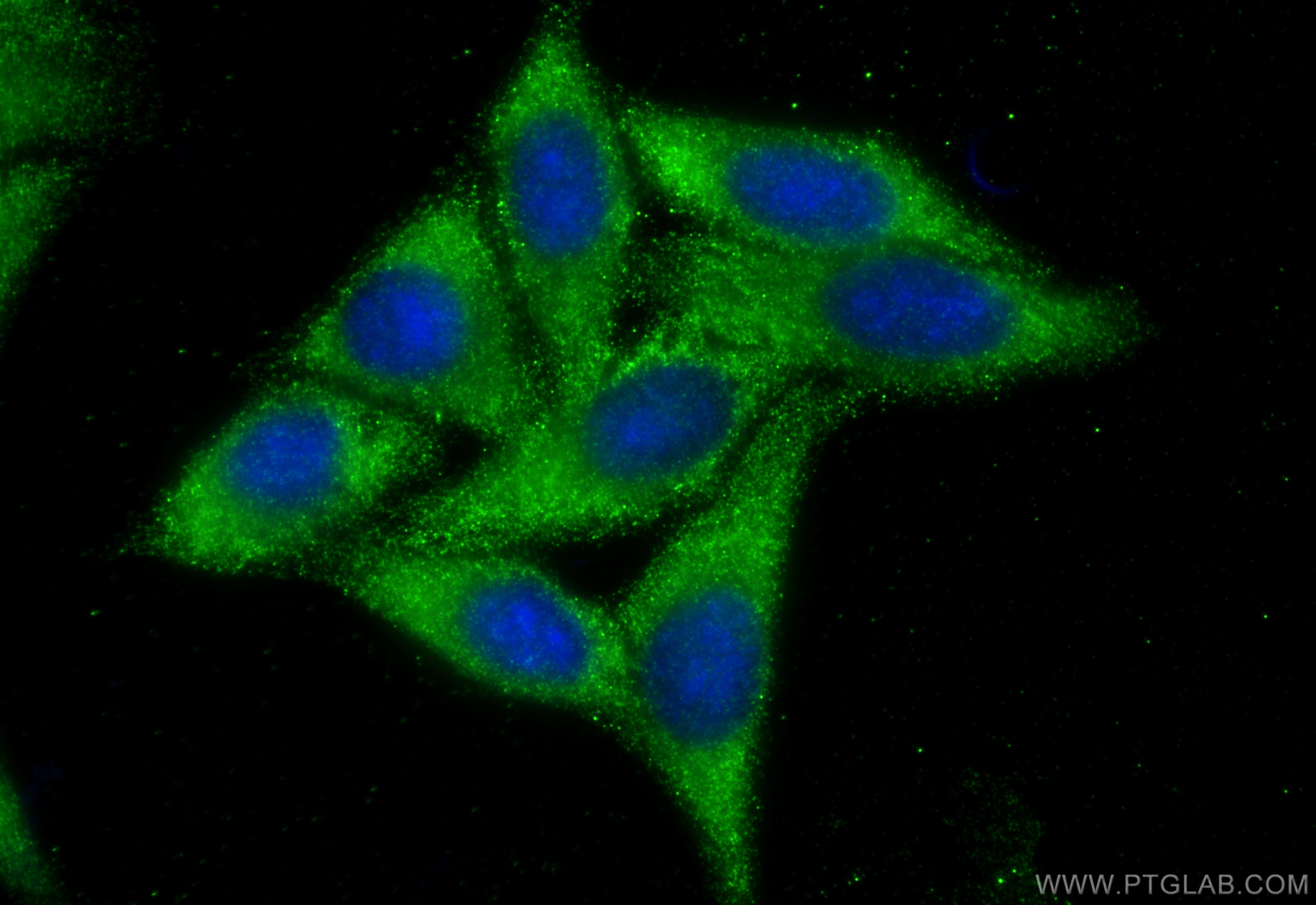Tested Applications
| Positive WB detected in | PC-3 cells, HepG2 cells, MCF-7 cells |
| Positive IF/ICC detected in | HepG2 cells |
Recommended dilution
| Application | Dilution |
|---|---|
| Western Blot (WB) | WB : 1:500-1:2000 |
| Immunofluorescence (IF)/ICC | IF/ICC : 1:50-1:500 |
| It is recommended that this reagent should be titrated in each testing system to obtain optimal results. | |
| Sample-dependent, Check data in validation data gallery. | |
Product Information
16693-1-AP targets KLHL14 in WB, IF/ICC, ELISA applications and shows reactivity with human, mouse, rat samples.
| Tested Reactivity | human, mouse, rat |
| Host / Isotype | Rabbit / IgG |
| Class | Polyclonal |
| Type | Antibody |
| Immunogen |
CatNo: Ag10065 Product name: Recombinant human KLHL14 protein Source: e coli.-derived, PET28a Tag: 6*His Domain: 1-388 aa of BC021267 Sequence: MSRSGDRTSTFDPSHSDNLLHGLNLLWRKQLFCDVTLTAQGQQFHCHKAVLASCSQYFRSLFSSHPPLGGGVGGQDGLGAPKDQQQPPQQQPSQQQQPPPQEEPGTPSSSPDDKLLTSPRAINNLVLQGCSSIGLRLVLEYLYTANVTLSLDTVEEVLSVSKILHIPQVTKLCVQFLNDQISVQNYKQVCKIAALHGLEETKKLANKYLVEDVLLLNFEEMRALLDSLPPPVESELALFQMSVLWLEHDRETRMQYAPDLMKRLRFALIPAPELVERVQSVDFMRTDPVCQKLLLDAMNYHLMPFRQHCRQSLASRIRSNKKMLLLVGGLPPGPDRLPSNLVQYYDDEKKTWKILTITGPHPISGKQESASSPEFRRRKTREFSNNTM Predict reactive species |
| Full Name | kelch-like 14 (Drosophila) |
| Calculated Molecular Weight | 44 kDa, 71 kDa |
| Observed Molecular Weight | 35 kDa, 70 kDa |
| GenBank Accession Number | BC021267 |
| Gene Symbol | KLHL14 |
| Gene ID (NCBI) | 57565 |
| RRID | AB_2131169 |
| Conjugate | Unconjugated |
| Form | Liquid |
| Purification Method | Antigen affinity purification |
| UNIPROT ID | Q9P2G3 |
| Storage Buffer | PBS with 0.02% sodium azide and 50% glycerol, pH 7.3. |
| Storage Conditions | Store at -20°C. Stable for one year after shipment. Aliquoting is unnecessary for -20oC storage. 20ul sizes contain 0.1% BSA. |
Background Information
Kelch-like protein 14 (KLHL14) is a member of the KLHL family. The kelch motif was initially discovered in Kelch. In this protein there are six copies of the motif. It has been shown for one member that it is related to Galactose Oxidase for which a structure has been solved. Two isoforms of this protein exist - 70kDa and 43kDa.
Protocols
| Product Specific Protocols | |
|---|---|
| IF protocol for KLHL14 antibody 16693-1-AP | Download protocol |
| WB protocol for KLHL14 antibody 16693-1-AP | Download protocol |
| Standard Protocols | |
|---|---|
| Click here to view our Standard Protocols |

